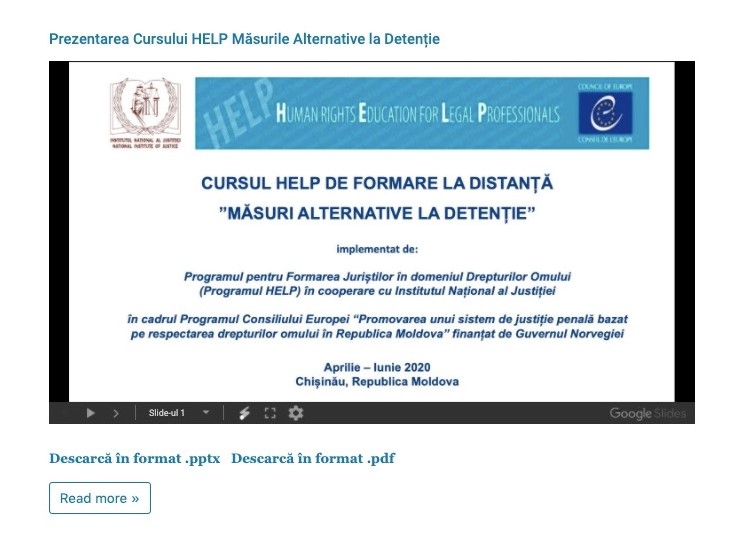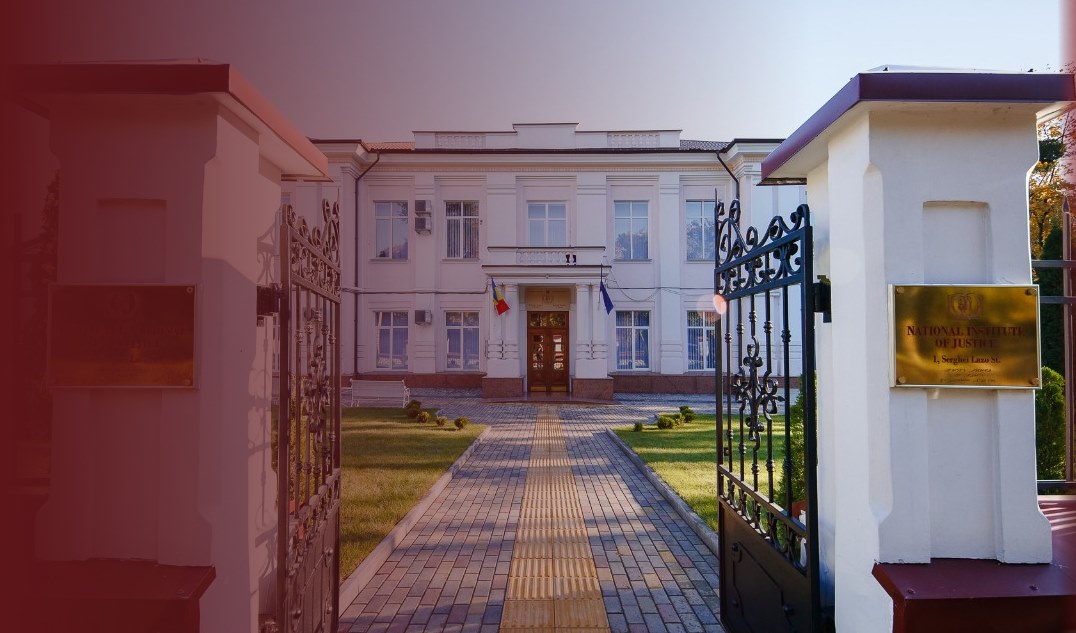
On Friday, April 3, 2020, the National Institute of Justice in partnership with the European Programme for Human Rights Education for Legal Professionals (HELP) launched the virtual pilot training course "Alternatives measures to detention". Developed by the HELP team and adapted in accordance with the national legal framework, it is intended for judges, prosecutors, court staff, prosecutor's consultants, as well as lawyers who provide state-guaranteed legal aid.
"The benefits of the distance learning are more obvious under the conditions that the continuous training process is suspended, as a result of the evolution of the epidemiological situation and of the measures taken to prevent the spread of Covid-19. This fact made the launch of the course more current than ever, along with seven other courses started by the National Institute of Justice on March, 26”, says in her greeting message the Director of the National Institute of Justice and HELP National Focal Point, Diana Scobioala.
The trainees, with the help of the tutors Anatolie Munteanu, NIJ trainer, and Tatiana Ciaglic, the head of the e-Training Section of the NIJ Centre for Legal Information and trainer of the NIJ, will develop knowledge on the essence, the regulation and the application of detention measures. In this context, the course refers to the most relevant universal and regional standards in the field of community sanctions and measures.
The distance learning program, active between April and June 2020, contains presentations, video tutorials, case studies, tests, forums of discussion, etc., which come to ensure the training of 84 NIJ beneficiaries who managed to register for the course. Those who will promote the final test will accumulate 40 hours of training and will receive certificates issued by the HELP Program of the Council of Europe.
The launch of the online course "Alternatives measures to detention" was possible thanks to the Council of Europe Project "Promoting a human rights compliant criminal justice system in the Republic of Moldova", funded by the Government of Norway.

